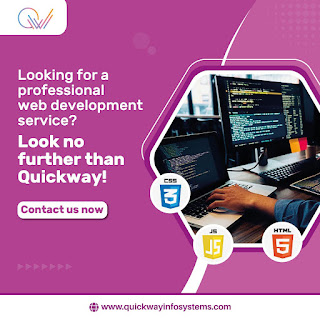9 PHP Frameworks for Web Development You Can't Ignore
As web development has developed as an industry, the range of frameworks and tools that developers can use to build apps has expanded significantly. While new PHP frameworks can be intimidating to learn at first, their functionality and ease of use make them well worth the investment of your time and energy. These nine frameworks are ones that you can’t ignore as you advance your web development career. In each case, we outline the benefits of each framework, along with some tips on where to find resources to get started learning it.
1) Laravel
Laravel is among the most popular PHP frameworks that offer
complete packages with all the required parts. It includes almost everything
from routing, templating, validation, querying and much more. The framework is
built on top of another great framework called Symfony and it has a large
community which can help you fix any hybrid app
development services problem in a jiffy. It also offers strong
support for testing so your application will always be in the best shape
possible. If you are looking to build enterprise level applications then this
is your go-to framework.
2) Symfony
Symfony is one of the most popular and powerful frameworks out
there. It is an extremely modular framework that can help you with a lot of
different things from routing to validation, from database access to
templating. The main advantage is that it includes all the basic functionality
that a developer needs in order to build an app or web site, so if you are
planning on building something quickly with few changes, this might be the best
choice for you.
3) Yii2
Yii2 is a MVC based framework that can be used for both backend
and frontend development. It is designed to build dynamic web applications
which use the model-view-controller architectural pattern. It is available in
two versions: Yii and Yii2. The former is an older version of the framework,
whereas the latter was rewritten from scratch in order to increase its
performance and scalability, with better design principles such as object
orientation, code reusability and loose coupling.
4) CodeIgniter
CodeIgniter was the first in a wave of lightweight, open-source
frameworks that were designed with simplicity and speed in mind. It was created
by EllisLab, a company that also develops ExpressionEngine and Joomla!. If
you're looking for something simple and straightforward, this is an excellent
option. For example, while they don't provide a database abstraction layer
(also known as ORM), they do provide auto-loading to help you connect to
external databases. Another advantage: because it's so lightweight, CodeIgniter
will run just fine on shared hosting without bogging down your site or crashing
your hosting provider's server!
5) Phalcon
Phalcon is a web framework written in C, inspired by Python. It
has been released under the Apache 2.0 license and is in use on over 100,000
sites. The framework focuses on three important aspects of application
development: performance, extensibility, and maintainability. In addition to
being super-fast, the code is simple to read and write. There are no bulky
dependencies; everything you need comes with the framework itself. The best
part about it? They offer free support for all their users! We have used this
framework before and have found it to be very versatile. If you're looking for
an easy way to get started building your next website, we recommend giving
Phalcon a try.
6) CakePHP
CakePHP is one of the most popular frameworks for building web
applications. It has a very well-documented and straightforward code base,
which makes it easy to maintain. The framework has many features such as an
integrated ORM (object relational mapper), CRUD interfaces, support for
scaffolding, and internationalization support. A downside to this framework may
be its large size; since it's been around longer than others there are more
files to download and install with this framework than some of the others on
this list.
7) Slim Framework
Slim is a framework that is focused on providing the essentials in
order to get your application off the ground quickly. It is not a full-featured
framework, but it does provide some significant features such as: Routing,
Middleware, and an extensible architecture to make it easy to build
maintainable applications.
8) Zend Framework
Zend Framework is a
scalable, open-source framework for the rapid development of web applications
and enterprise software. It is widely used to build powerful web applications
such as Facebook and Twitter. Zend Framework has an array of features including
MVC support, XML/XSLT support, RESTful API abstraction and dependency injection
container. With this robust and advanced PHP framework, you can easily develop
complex enterprise level apps in lesser time. CodeIgniter: The CodeIgniter is
one of the fastest and easiest frameworks that enables you to develop
high-quality programs without any steep learning curve. If you are looking for
a simple but powerful solution with less code than this is your ideal
toolkit.
9) FuelPHP
FuelPHP is a fresh and agile framework that is designed to be
adaptable to your needs. In addition, it supports all the latest PHP frameworks
such as Symfony2, Zend2, CodeIgniter and Laravel. Like other frameworks in this
list, it is open-source and free. As with any product or service, there are
disadvantages to using FuelPHP. The documentation may not be up-to-date with
current practices and can feel dated at times. Another disadvantage of FuelPHP
is that it does not have many web developers or contributors on their team so
there might not be enough support if you need assistance from their hybrid mobile
app development community of users.
Conclusion
In the event that you're searching for a web advancement process,
at that point your best option is to pick one of these frameworks. It's
anything but difficult to get your web
design up and running with any of these frameworks. They are all tried and
true, dependable and powerful. Regardless of whether you need a little or
expansive framework, there is something out there to fit your needs.




Comments
Post a Comment